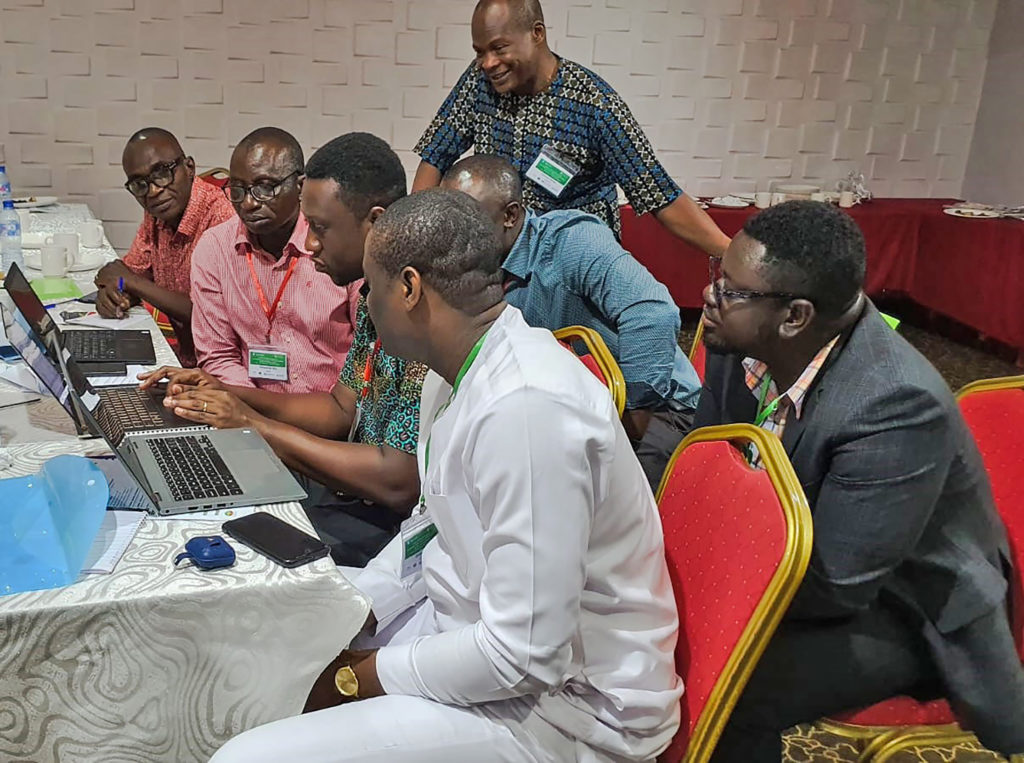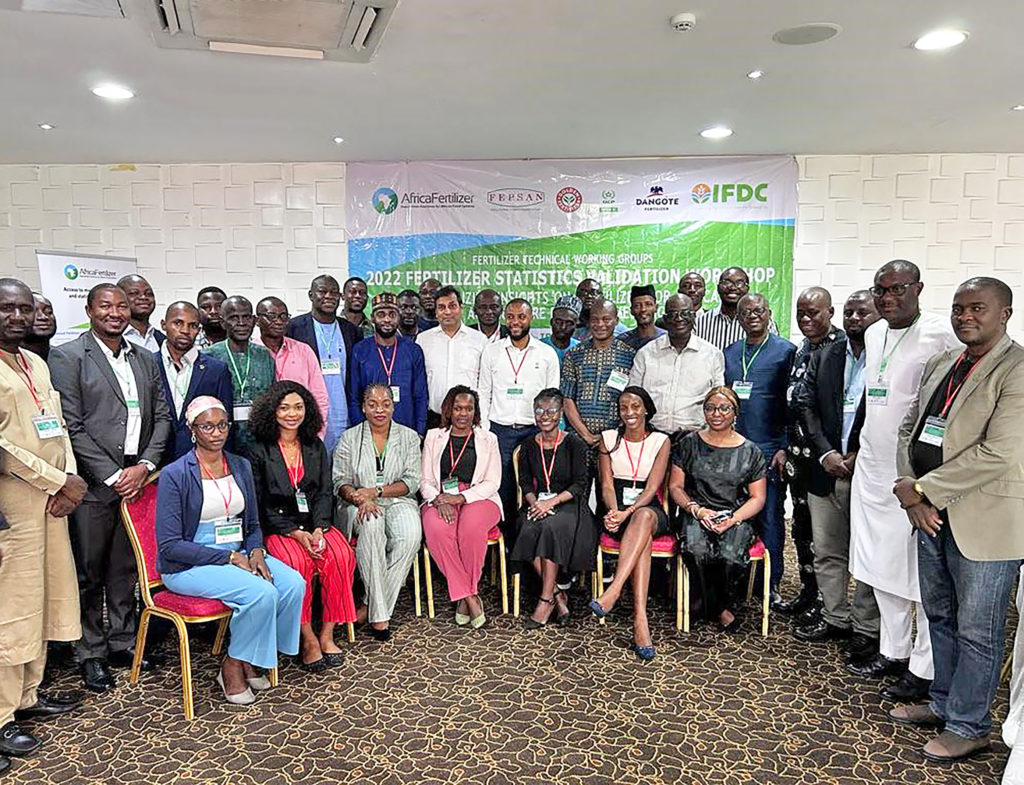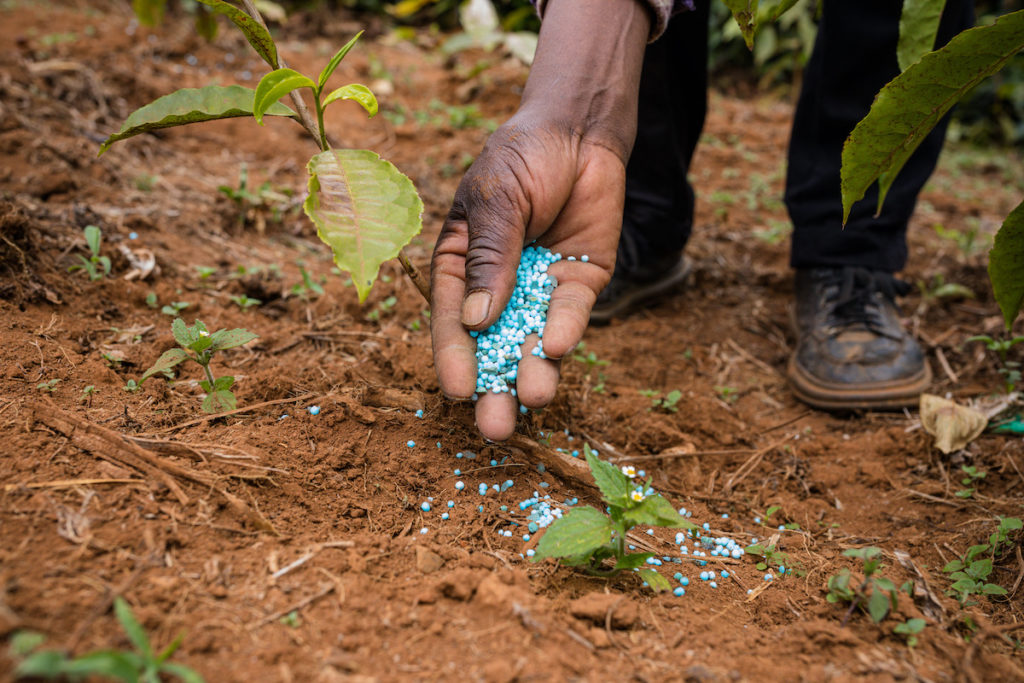
Timely fertilizer data plays a major role in increasing agricultural productivity for farmers. Unfortunately, access to quality fertilizer data has been a major challenge for many industry actors, including regional economic communities, national governments, public and private sector actors, and farmers across sub-Saharan Africa.
Thus, diverse efforts are being made to increase access to and use of quality fertilizer data to drive policy and business decisions to increase agricultural productivity and improve the livelihoods of millions of vulnerable people across sub-Saharan Africa.
Following the Africa Fertilizer Summit held in Abuja, Nigeria, in 2006, partners of the International Fertilizer Development Center (IFDC), including the International Fertilizer Association (IFA), came together to support the AfricaFertilizer initiative (formerly AfricaFertilizer.org). The main mandate of AfricaFertilizer is to provide timely and accurate information on fertilizer trade, policies, prices, etc., all in an effort to stimulate growth in the markets.
Since its inception, AfricaFertilizer has led the effort to collect, process, validate, and widely disseminate the much-needed fertilizer data to facilitate well-calibrated decisions by policymakers and businesses, which ultimately leads to better access to fertilizer for agricultural productivity.
AfricaFertilizer’s Fertilizer Technical Working Group (FTWG) sessions serve as a strategic platform to accomplish the initiative’s core mandate. Currently, these workshops allow experts to gather information on 18 selected African countries, including Benin, Burkina Faso, Côte d’Ivoire, Ghana, Mali, Niger, Nigeria, Senegal, and Togo in West Africa and Burundi, Ethiopia, Kenya, Malawi, Mozambique, Rwanda, Tanzania, Uganda, and Zambia in East and Southern Africa.
In these workshops, key fertilizer stakeholders from the public sector (Ministries of Agriculture, customs, research institutions, CountrySTAT), the private sector (fertilizer blenders, producers, suppliers, importers, and exporters), technical partners, donors, and civil society organizations actively participate in reviewing and validating the country’s fertilizer data.
“At these workshops, we take the data validation exercise very seriously, and any data that is not agreed upon by the stakeholders, we go a step further and work with them on a one-on-one basis to make sure that whatever is put out there is accurate,” says Sebastian Nduva, AfricaFertilizer Program Lead.

2023 Nigeria Fertilizer Technical Working Group Meetings
After FTWG workshops in Côte d’Ivoire, Ghana, Mali, and Burkina Faso, AfricaFertilizer held its fifth workshop in Nigeria March 29-30, 2023, for national fertilizer sector stakeholders to validate the country’s 2022 fertilizer statistics and apparent consumption. Technical and financial support was provided by Development Gateway, IFDC’s HortiNigeria project, Fertilizer Producers and Suppliers Association of Nigeria (FEPSAN), OCP, Golden, the Nigeria Sovereign Investment Authority (NSIA), Dangote, and Indorama, among others.
The data generated and validated by the Nigerian fertilizer industry actors, under the guidance of AfricaFertilizer, will go a long way in supporting decision-making efforts regarding various national agricultural programs, including the Presidential Fertilizer Initiative (PFI), to promote agricultural productivity.
“We are grateful to IFDC for this workshop. It is a workshop where we take validated production data of the fertilizer sector,” says Sale Adamu, Deputy Director of the Federal Ministry of Agriculture and Rural Development (FMARD) in Nigeria. “The workshop is important in driving the policies and decisions of the Ministry.
Many industry actors, including the West African Fertilizer Association (WAFA), find value in AfricaFertilizer’s data validation work, as the output calibrates their respective private sector activities.
“WAFA works with IFDC and other partners across each of the countries in West Africa to look at the data on production, export, consumption, and other things related to fertilizer to assess the progress we are making to get greater output for agriculture,” said Dr. Innocent Okuku, Executive Secretary of WAFA.
According to Moses Negedu, Data Analyst for FEPSAN, the workshop has had a positive impact. “Now we know our apparent consumption of fertilizer locally, and we see all the gaps in the sector, and we now know how to tackle them,” he said.
AfricaFertilizer’s mandate goes beyond providing quality fertilizer data to include incentivizing the fertilizer industry to make quality investments in strengthening and expanding the industry to increase agricultural productivity.
At this time of fertilizer crisis, AfricaFertilizer’s data fills in the gap to provide information to help a range of stakeholders make informed decisions, including investing in profitable areas to positively impact agricultural productivity.

Highlights of the 2023 Nigeria FTWG Meeting
- The volume of fertilizer raw materials imported in 2022 included 187,297 metric tons (mt)of granular ammonium sulfate, 177,776 mt of diammonium phosphate (DAP), and 111,313 mt of muriate of potash (MOP). These are the major raw materials used in blending NPK.
- The total quantity of NPK fertilizer blended in 2022, as tracked by FEPSAN, was 553,639.16 mt.
- Urea production rose from 2,701,279 mt in 2021 to 3,458,740 mt in 2022, a 28% increase.
- Importation of fertilizers decreased due to the Russian-Ukrainian crisis. Nigeria could not import the large quantities of MOP required from Russia and only brought in 35,400.65 mt. It later sourced the balance of 75,075.55 mt from Canada.
- About 301,353 mt of stock was carried over into 2023. It was not utilized in 2022 due to late importation of raw materials used for blending by NSIA.
- Fertilizer exports rose significantly due to an increase in international fertilizer prices in 2022, making the higher net margins attractive for manufacturers. Exports climbed from 1,348,924 mt in 2021 to 2,540,523 mt in 2022, an 88% increase.
- Customs data showed about 18,400 mt of land exports of urea, NPK, and MOP to neighboring countries.
- The legal framework should allow the free distribution and movement of fertilizer to neighboring countries through land borders.
- Figures on limestone (filler) need to be included in the validation process going forward, as limestone companies are growing in number. It is an important part of NPK blends and accounts for 26% of the production. FEPSAN has the capacity to track filler usage among blenders.
- HortiNigeria creates market potential for the fertilizer industry in the horticulture sector through investment in crop-specific fertilizers, establishment of soil analytical services, establishment of capacity building services for potential fertilizer experts within both public and private sectors, an increase in financing in the supply chain, and more investment in organic fertilizer.
- Following the fertilizer law in Nigeria, the Federal Ministry of Agriculture and Rural Development (FMARD) has started registering blenders and has trained over 100 state officials/inspectors, three from each state. An amendment of this law will also include agrochemicals.
- More fertilizers need to be imported into the country to correct the high in-country prices currently experienced at retail points to enable farmers to purchase these products at affordable prices.
- With the vital role played by these national-level FTWG sessions, securing additional resources will help expand data collection, validation, and dissemination to enable data-driven decisions for African food systems.




